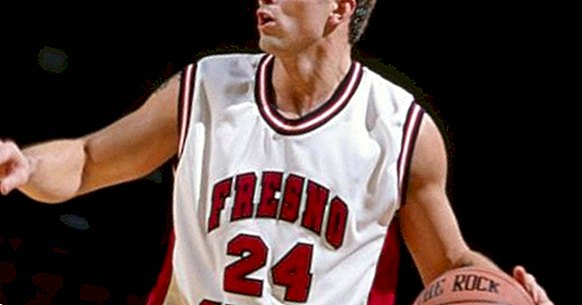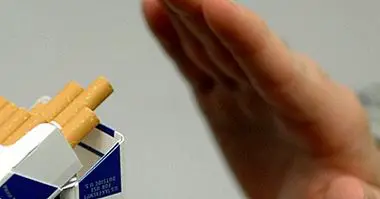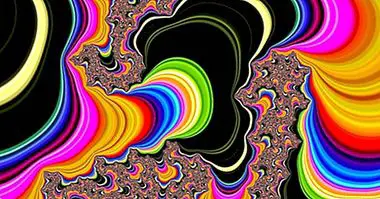A junkie on the court: the calvary of the NBA player addicted to heroin
The data on bank accounts of former NBA players are, in many cases, surprising. Some knew how to correctly invest their fortunes and managed to increase their wealth if possible.
However, statistics reveal that 60% of the stars in the best league in the world were ruined in a span of only 4 years since its withdrawal.
Chris Herren: NBA player and drug addict
A large part of these athletes live a life marked by praise, money and dubious companies from their collegiate stage, when they begin to excel in sports and the smell of future money is intensifying. They are treated like stars and their environment pushes them to become basketball and advertising machines to quickly monetize their talent. These two facets subordinate the need to take care of education, both formal and informal of young people, especially considering that many players come from families with serious economic problems .
The humble origin of many African-American players, of conflicting and unstructured families, results in excessive expectations in the face of the growing success of the offspring. There are cases to give and take. One of the most famous was the sad story of Len Bias, athletic forward 2.03 meters tall. His time at the college (between 16 and 18 years old) and the university (between 18 and 22) was brilliant, being appointed All-American in his freshman course.
Comparisons of Len Bias with Michael Jordan became a constant in the media , and finally was chosen in the Draft of the year 1986, in the second position by the Boston Celtics. For those less educated in the noble sport of the basket, this election is to say that Bias signed his first contract for an NBA team being selected as the second best young player on the planet.
At 22, Bias was the happiest man in the world, and before that guaranteed contract of several million dollars, went to celebrate with his friends. That same night, the young promise Len Bias died of a cardiac arrhythmia caused by an overdose of cocaine .
Len Bias could never play a match in the NBA, and his death was a tremendous shock to his family, his friends and the entire world of sports in general. The NBA took years to recover from that setback, and the case of Bias inaugurated certain protection and control measures for university players.
The stormy life of Chris Herren
The life of Chris Herren is worthy of a Hollywood movie. His long relationship with drugs, which brought him to the brink of death on several occasions, deserves to be explained.

A native of Fall River, a small town in the state of Massachusetts, Herren was a child prodigy with the orange ball. His explosive physique, his good stature to perform in the base position (1.90m) and his magical and fast-paced style of play made him one of the great attractions of the University League, as well as one of the best projects for the future of the NBA. It was precisely and n his college stage in Boston, when Herren flirted with drugs for the first time .
Chris Herren had a certain reputation for troubled and cheeky boy. During his previous stage, in the institute, he had been hunted several times drinking alcohol, even in the previous hours of important matches. Obviously, the jump from alcohol to cocaine was great.
A control of illegal substances of the university league detected the positive for consumption of cocaine in Herren's blood . The young player had been caught again, and in this case with a hard drug in blood. The leaders of Boston University decided to remove him from the team. Herren landed at the mediocre University of Fresno, in California. His situation in these latitudes worsened fatally: Herren had constant regrets and suffered a severe depression because of the shame caused by the public disclosure of his rampant drug. He considered himself a failure because he failed his small town, where he was an idol. His family and all the people of Fall River had high expectations for him, and he felt that the drug issue had definitely disappointed them and that his public image would never be the same again.
The player premiered his journey in Fresno promising not to use any kind of illegal substance again. Promise that, years later, was revealed unfulfilled.
In spite of everything, Herren was progressing in the track until becoming one of the best players of the university league, averaging statistics of scandal, that only were turbulent by their great irregularity. Even so, the basketball world saw him with great options to be chosen in the Draft, which finally happened.
His stage in the NBA
Herren got married and had a son before his debut in the NBA. His wife was an unconditional supporter for his serious psychological problems and addiction, and cushioned the frequent ups and downs of the base, who showed no signs of their problems in public. He was chosen the number 33 of the Draft by the Denver Nuggets . Herren was in front of a trial by fire with his signed professional contract and the possibility of finding a place among the best. An opportunity not only to succeed athletically, but to take responsibility for his life and leave behind his demons.
In his first year as a professional, Herren was shortly tied by veteran Nuggets players, including Antonio McDyess and Nick Van Exel, both leaders and established stars of the league. Just to see him arrive in the corridors to attend his first training, Van Exel intercepted him and, accompanied by the giant McDyess, released Herren: "Boy, we know your CV, so we will watch you closely". They did so, and Herren himself acknowledged many years later that it was one of his healthiest seasons .
A 22-year-old boy playing in the NBA, earning millions of dollars. And totally out of control. His life was deteriorating at a breathtaking speed. In his second season, Herren was traded to the Boston Celtics, one of the most successful franchises in the NBA, and his hometown. The prodigal son was coming home. At that stage he started using a drug called oxycodone, an analgesic that was often used to relieve the pain of joint and muscle injuries. But Herren lost control and began taking oxycodone compulsively.
The narration of the facts of Herren himself is creepy, and although he publicly showed an image of a basketball player more, psychologically he was devastated , unable to disengage and with an anxiety that overflowed.
From Boston to Turkey: a basketball player
His discrete season triggered his departure from Boston , and Herren left American lands to sign for Galatasaray of Turkey, equipment that was arranged to dispute the playoffs. There he achieved very prominent numbers. The following year, he settled in China, where he also consolidated as an effective base. His good performance silenced doubts about his possible mental state or his extra-sports problems. As often happens in the world of sports, the human facet of the protagonists is reduced to nothing by the intensity of the spotlights on the playing field.
In this hermetic life, Chris Herren had gone from oxycodone to more and more types of stimulants. He had started using heroin, one of the most dangerous drugs. According to his own stories, he had at his disposal all kinds of drugs in any of the countries he visited.
The umpteenth relapse
The player fell into a maelstrom of drugs, despair, depression and madness . In their particular hell, not even their two children could be enough reason to overcome their addictions. He was on the verge of suicide at various times, aware that it was a burden on his family. His constant relapses were costing his wife health. Herren relates that, in one of his constant delusions, he left his family and lived for a few days as a vagabond, after drinking alcohol with a homeless in the street.
His story seemed to be sentenced. He was admitted to a detoxification center thanks to an old friendship of his mother, deceased years before. Little by little, Herren went out of the hole, not without constant knocks and relapses. The director of the center where Herren was interned allowed him to leave a few hours of the facilities to attend the birth of his third child. Right after such an event, Herren went to find liquor at a liquor store.
Upon hearing about this episode, his wife told him that if he did not return to the center to finish his detoxification, he would never want to see him again. He returned, and there he coincided with one of the assistants, who, after witnessing several breaches of the internal rules and aware of the pain he caused to his wife and children, snapped at Herren:
"Why do not you call your wife and leave her alone once and for all? Do not you realize you're sinking your family? "Overcoming
Chris Herren managed to defeat the devil . Currently, he is totally rehabilitated and is dedicated to giving lectures and talks throughout the United States to tell his story and raise awareness among the public, especially young people, about the effect of substances.
The drugs marked his career, which could have been amazing, and his personal life. Herren no longer plays in the NBA, but he can be proud of having gone ahead, of having managed to be an example. He currently lives with his wife and children, and says that, after many years, You can shave looking at yourself in the mirror every morning .
A documentary that narrates all his life
Do not miss the documentary about the life of Chris Herren :
1/2 NBA Documentary - "Chris Herren: a junkie ... by antonio-lopezmontoya-3



















